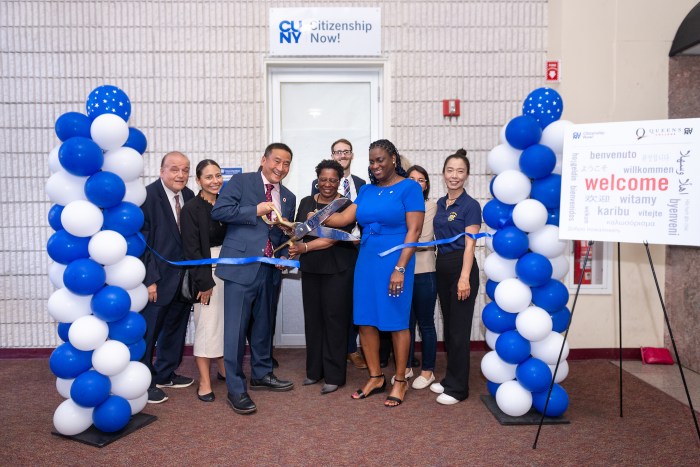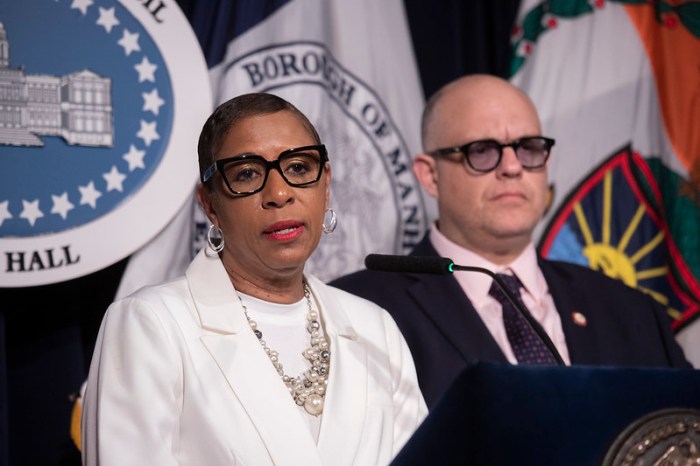By Michelle Han
With most City Council members from Queens chiming in on the borough's need for affordable housing, the Council voted overwhelmingly Monday to extend the city's rent regulation and stabilization law.
The bill, approved by a 46-3 vote amid cheers by tenant activists from the packed gallery at City Council chambers, affected thousands of housing units throughout the borough. It extends for another three years legislation that sets maximum rent increases and governs eviction protections.
City Council members also voted on a companion bill, aimed at making it harder for landlords to deregulate apartments and push them into the open market free from rent ceilings. The mayor was expected to sign both bills shortly.
Organized tenants and housing advocates testified extensively during a hearing before the Council's Housing and Buildings Committee earlier this month, urging the Council to preserve rent regulations.
They said deregulation would devastate the city's already overheated real estate market, making it impossible for anyone but the rich to live in New York.
Council Speaker Peter Vallone (D-Astoria) called the move “one of the most important things we can do for the people of the city of New York.”
But he added that lawmakers need to find other ways to accommodate the city's growing population, such as building more affordable housing.
The bill's most outspoken opponent was conservative Councilman Tom Ognibene (R-Middle Village), who was nearly drowned out by boos and catcalls from the gallery as he took several minutes to explain his no vote.
Taking a slightly different perspective than he did during the housing committee hearings, when he cast the lone dissenting vote in the committee, Ognibene said the bill creates, in effect, “the most prodigious tax break to those who can most afford to pay rent, and penalizes those who can least afford to pay rent.”
“Where is the justice in that system?” he said.
The councilman said rent regulations rather than preserve affordable housing units actually diminish the market for affordable housing because residents who earn enough to pay more rent end up occupying stabilized apartments.
He said it was ironic that the people testifying in favor of rent stabilization were the ones who stand to lose the most from the distortions caused by rent ceilings, not city dwellers earning six-figure incomes who live in these apartments.
Some Queens delegation members could empathize with the tenants themselves. Councilwoman Karen Koslowitz (D-Forest Hills) and Councilman John Sabini (D-Jackson Heights) both said they were tenants of rent-stabilized apartments and supported the renewal of the rent regulation law.
“As a rent-regulated tenant myself, I know,” Sabini said. “You just can't go out and find something at an affordable rate for working people in New York.”
“I probably have the greatest number of rent-stabilized apartments in my district,” Koslowitz said. “I am happy to be voting on this [bill] and resolution.”
Councilman Sheldon Leffler (D-Hollis), in supporting the measure, said the city needs to go further to provide affordable housing for residents. He proposed using the sale of city-owned property to subsidize affordable housing units and lowering building permit fees for developers.
“The laissez-faire method just has not worked with respect to housing,” he said.
Councilwoman Helen Marshall (D-Elmhurst) agreed. “The discrepancy between the rich and the poor is widening each day,” she said. “New York City will be uninhabitable by people of modest means.”
































